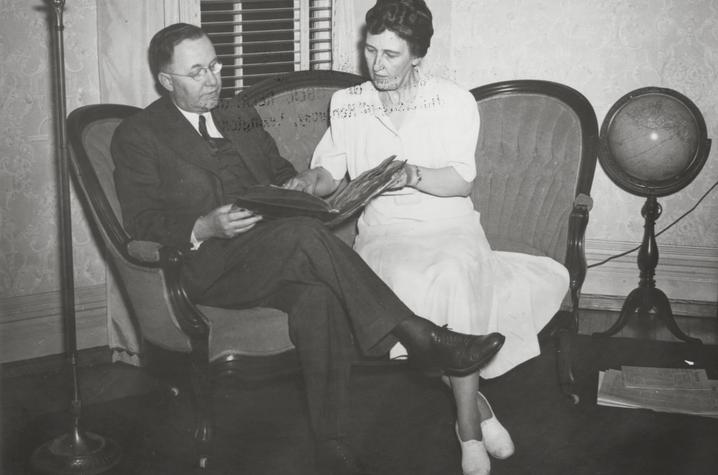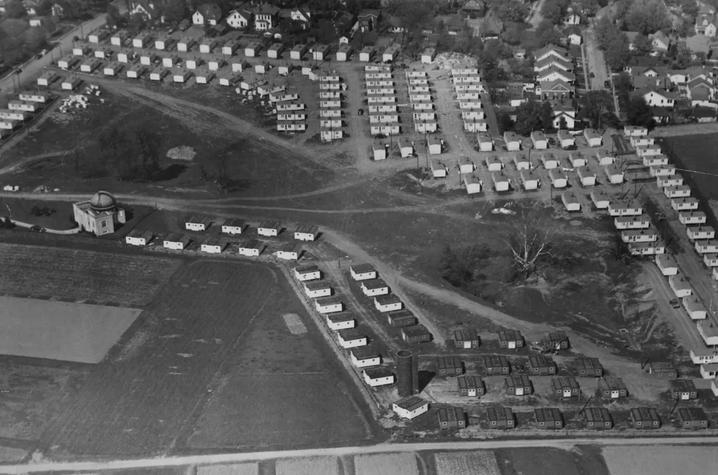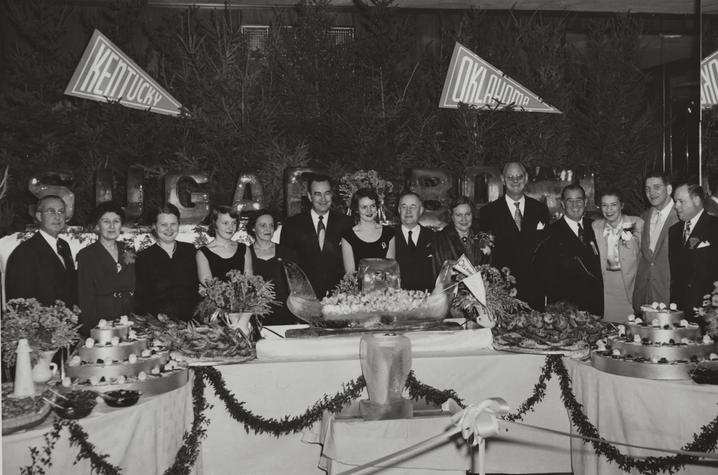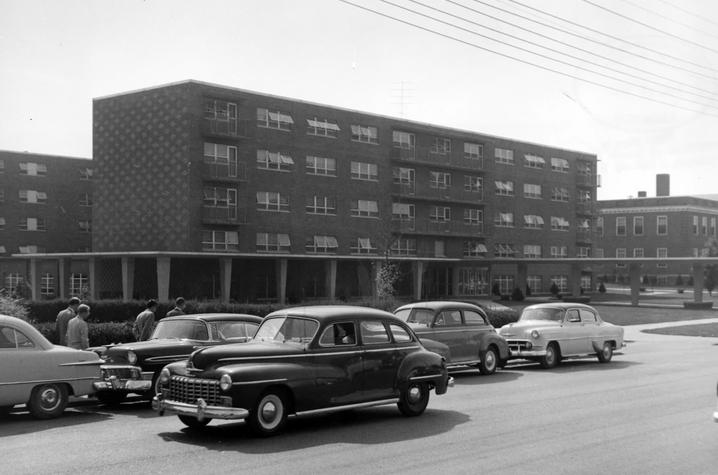Sesquicentennial Series: The Donovan Effect
LEXINGTON, Ky. (March 7, 2014) — In celebration of the University of Kentucky's upcoming sesquicentennial in 2015, the 72nd of 150 installments remembers the life and career of the university's fourth president, Herman Lee Donovan.
Herman Lee Donovan served as president of UK for 15 years, from 1941 until 1956. An educator by training and profession, he guided the university through the crises of racial integration, as well as World War II and its aftermath. Like his predecessors, Donovan fought vigorously to extend faculty rights and to improve salaries for his professors. He also sought to enhance the status and image of the university by recruiting exceptional young talent and increasing the number of extension services offered in the Central Kentucky region.
Donovan was born in 1887, in Mason County, Ky. Graduating from Western Kentucky State Normal School (now Western Kentucky University) in 1908, he married Nell James Stuart of Pembroke, Ky., in 1909. He earned an undergraduate degree from State University (now UK) in 1914, a master's degree in 1920 from Columbia Teachers College (now Columbia University), and in 1925 a doctoral degree from George Peabody College for Teachers, in Nashville, Tenn.
In 1921, Donovan took a professorial position at Eastern Kentucky State Normal School (now Eastern Kentucky University) and in 1928 became president of that institution. Upon the retirement of President Frank McVey, he was selected as UK's fourth president in 1941.
The first problem confronting the Donovan administration was the effect on the campus of World War II, which the United States entered late in the new president's inaugural year. The U.S. declaration of war against the Axis powers resulted in the departure of male students from the campus and a general decrease in the enrollment of men. To alleviate the demographic pressures created by this situation, the university made available early graduate programs to ROTC enlistees and to students drafted into the armed forces. It directly assisted the war effort by placing its facilities at the disposal of the Army Specialized Training Program, which provided for the training of officers serving in the Army Corps of Engineers.
The conclusion of the war brought a massive influx of veterans onto the UK campus, who qualified for the higher education benefit of the General Issue (G.I.) Bill. To provide for badly needed student housing, Donovan procured funds from the federal government for the purchase of prefabricated student living quarters, resulting in the construction of the residential "village" of Cooperstown to house the veterans and their families.
The year 1949 witnessed the beginnings of the successful racial integration of UK. Lyman T. Johnson's application for admission to the Graduate School, at first denied on the basis of Kentucky's segregationist Day Law, was subsequently ordered approved by court action and Johnson was admitted, albeit off-campus, to the graduate program in history that year. With the matriculation of the first "class" of African-Americans in the fall of 1954, the official academic segregation of the campus was effectively ended. Donovan's approach to the issue, essentially cautious and low-key throughout, resulted in a continuance for years to come, of a de facto separation of the races in classrooms and campus social situations.
Donovan staunchly defended the principle of academic freedom, opposing attempts in 1951 to bring the university under the control of the State Department of Education in curricular matters, as well as proposals by legislators and religious leaders a year later to require a loyalty oath on the part of university employees.
Positive developments on the campus were evidenced in a number of other areas. The president encouraged faculty members to communicate with and establish professional relationships with their academic counterparts in other institutions of higher learning. In order to attract new students, he pushed for the opening in 1955 of a northern extension center in Covington, Ky. Moreover, a new Department of Geography and a College of Pharmacy were established in 1944 and 1957, respectively, and impetus was given the preliminary development of a medical school in 1955.
Major team sports flourished during this time as well. The hiring of Paul "Bear" Bryant in 1946 as football coach resulted in a string of lucrative winning seasons. Basketball, however, maintained its dominance and produced a number of championship teams, despite setbacks to its reputation occasioned in 1951 by the emergence of a point-shaving scandal implicating several of the 1948-49 players.
In 1956, Donovan stepped down as president of the institution he had led through a world war and into a post-war period of unprecedented growth and affluence. For him retirement brought a variety of avocational pursuits. Always a prolific essayist and pamphleteer, he continued writing articles and produced a book, "Keeping the University Free and Growing" (1959). Donovan served as director of the Lexington Chamber of Commerce, the Henry Clay Memorial Foundation and the Kentucky Home Mutual Life Insurance Company. He died in Lexington on Nov. 21, 1964.
This story on UK's history is presented by UK Special Collections. Special Collections is home to UK Libraries' collection of rare books, Kentuckiana, the Archives, the Louie B. Nunn Center for Oral History, the King Library Press and the Wendell H. Ford Public Policy Research Center. The mission of Special Collections is to locate and preserve materials documenting the social, cultural, economic and political history of the Commonwealth of Kentucky.
MEDIA CONTACT: Whitney Hale, 859-257-8716; whitney.hale@uky.edu









